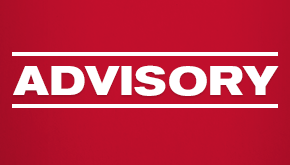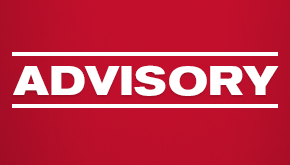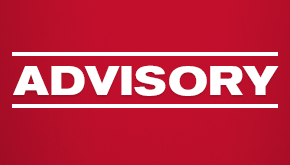Boards and Necessary Repairs
What happened in Surfside is a tragedy. No question. What was the cause? Just about everyone is pointing fingers and it may be that we will never know for certain -- it is likely the result of a series of failures by various individuals, agencies and laws. Included among the possible causes in press reports are failures of governance – both that the Board waited too long to make the needed repairs and that the unit owners opposed the assessment the Board sought to impose. Indeed, according to these reports, a petition challenging the assessment was pending at the time of the collapse.
These governance issues are not unique to what happened in Florida. These are issues faced by many condominium boards (and some cooperative boards) in New York and elsewhere around the country. If an appropriate professional tells a board that there are dangerous conditions, or repairs that must be made for the safety of the residents, can the board cause the repairs to be made without unit owner approval, which may be virtually impossible to get? It depends on that building’s documents.
There have been many attempts in Albany to introduce legislation to give unit owners or shareholders so-called greater rights that, under the guise of encouraging transparency, would actually give shareholders or unit owners – none of whom owe a fiduciary obligation to the entity – control over, if not a veto of, Board decisions. This even though it is the board that has the fiduciary obligation to act in the best interests of the entity and not in the interest of a particular owner’s pocketbook. One recent example is Senate Bill 4595/2021 (there is no corresponding bill in the Assembly). There, the sponsors of the bill seek to pass the “Cooperative Shareholder Protection Act” which, among other things, would require shareholder approval for all non-emergency capital improvements costing in excess of $50,000. While emergencies are carved out, the proposal would seriously limit a cooperative board’s ability to act. For example, a roof replacement (which could easily cost more than $50,000) may not be an emergency (yet), but it may be well-advised. And if shareholders had the right to stop the project, those who do not live on the top floors may be unwilling to spend money – they may well perceive the problem as not impacting them (yet).
Florida’s Bar Association has now organized a task force to make recommendations for legal reform to deal with the governance issues that have been exposed. As practitioners in the field of cooperative and condominium representation, we would urge the New York legislature to avoid compounding an already existing problem by further limiting a board’s power. In fact, most if not all condominiums already have limitations on board powers in their governing documents. We propose that a fairly simple “fix” to New York’s Condominium Law (Real Property Law Article 9-B) would have an important impact on a board’s ability to act in situations where the health and safety of the building and its residents are at stake.
Condominium by-laws tell unit owners that the “affairs of the condominium shall be governed” by the board. In other words, a board is elected and those who are elected make operational decisions. And, as such, the board has a fiduciary obligation to act in the best interests of the condominium – and not any unit owner’s personal interest. Yet, almost every condominium by-law we have ever seen contains a provision, often entitled, “Alterations, Additions or Improvements to the Common Elements.” This allows a board to make “all necessary or desirable alterations, additions or improvements to the Common Elements,” but prohibits a board from spending more than $X in one year without the approval of a supermajority of unit owners. The dollar amount varies widely, from $10,000 to $500,000 or more.
And while the above provision would not apply to “repairs,” we have also seen by-laws which explicitly include repairs in the monetary limitation, so that the board could not, without unit owner approval, authorize virtually any work for any reason (even to preserve safety) if the cost exceeded the amount specified in that building’s particular by-laws. We recognize the importance of checks and balances – no one wants a board that runs amok, spending its unit owner’s money on what some might see as frivolous projects. But isn’t it important that a board be permitted to act when it is imperative that it do so?
There is another roadblock found in by-laws. Assuming boards can perform necessary work, how is it paid for? The board could levy a special assessment, but that is not always a practical solution. If unit owners can’t or won’t pay, collection efforts – often in the form of foreclosure or commencement of a money action against the defaulting owner -- are time consuming and expensive. The board can always borrow money, right? Not necessarily. Each by-law is different, but many provide that the affirmative vote of a supermajority of unit owners is required if the board wants to borrow more than a specific amount. This is often, but not always, the case whether the loan is secured by common charges (RPL 339-jj), or whether it is a traditional mortgage loan secured by a unit owned by the board, often the resident manager’s unit.
One may then ask why a board doesn’t just amend its by-laws to give it increased authority. It can’t – any amendment to the by-laws requires a supermajority vote of the common interest and number of apartments (RPL 339 (v)(1)(j)). Any lawyer who practices in the field, and anyone who lives in a condominium, knows that getting a quorum of unit owners to a meeting can be a challenge, even if the quorum is well below the 50% mark. Obtaining the consent of a supermajority can be close to impossible.
For these reasons we would urge that the Condominium Act be amended to invalidate any by-law provision that would work to prevent a board from acting when it is necessary to do so, including the right to borrow money for these specific purposes. Precedent exists for such a law. The Office of the Attorney General has, for many years, recognized the concerns we raise, albeit in a somewhat different context. There are often provisions in condominium by-laws which prevent a board from acting without sponsor consent during its first five years provided sponsor owns a unit. Among other things, boards cannot impose assessments, make alterations to common elements or even enter into certain kinds of contracts without sponsor approval. But – at the insistence of the Attorney General – those provisions include an important carve-out. Boards can, without sponsor approval, take action to comply with law (including of any governmental authority), to comply with insurance requirements, to remedy a violation or to protect against imminent threat to the preservation of the building or the health and safety of its residents. There is no reason why these same carve-outs should not apply for all purposes.
We also note that even though it is rare, we have come across cooperative by-laws with language similar to what is found in condominiums – that boards can only spend more than $X with shareholder approval. In cooperatives, any provision which restricts a board from acting is likely a violation of Business Corporation Law Section 620(b). It requires a unanimous vote of shareholders to “restrict” the board “in its management of the business of the corporation.” The restriction must be in the certificate of incorporation and must be voted on by all existing shareholders – new shareholders must be on notice of the provision. Nonetheless, these restrictions do exist and shareholders have attempted to invalidate board action based on those. We would recommend that the New York State legislature amend the Business Corporation Law to make explicit that cooperative boards cannot be limited in dealing with essential expenditures, as we define them above.
What we are proposing is a small, but vital, category of items. No governing document should restrict a board from acting when it is essential to act. Yes, if board members have the power, they will also have the responsibility, and thus the liability. But isn’t that better than being caught in an impenetrable cycle where nothing can get done?
Reprinted with permission from the July 12, 2021 edition of the New York Law Journal. © 2021 ALM Media Properties, LLC. All rights reserved. Further duplication without permission is prohibited, contact 877-257-3382 or [email protected].


































